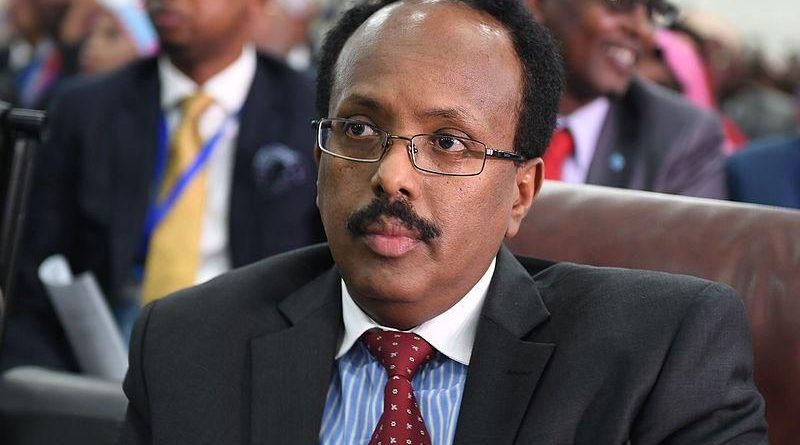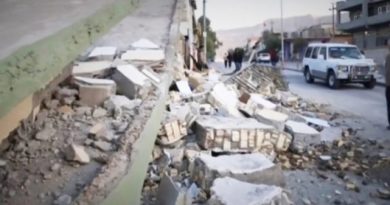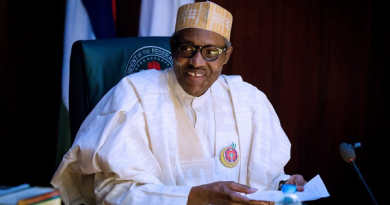Failure to Pick New President Leads to Violence in Somalia
Drew Starbuck
Staff Writer
Somalia failed to pick a new president by the February 8 deadline after negotiations between the central government and the federal states broke down in the days leading up to the election, states Africa News. The president of Somalia, Mohamed Abdullahi Farmajo, ran for another term in office and is accusing the semi-autonomous regions of Jubbaland and Puntland of failing to compromise on setting an election. Farmajo is also accusing his rivals of breaking confidence on a deal constructed in September, which laid out a timeline for the vote and would have allowed indirect presidential and parliamentary elections to be held in late 2020 and early 2021, reports Al Jazeera.
The nature of Somalia’s electoral process and system in which they elect their legislators and presidents is unique. Al Jazeera outlines that clan elders from the Somali clans indirectly choose the members of the Lower House, while the five federal states of Galmudug, Hirshabelle, Jubaland, Puntland, and South West elect the members of the Upper House. Members of both houses pick a president, who then nominates a prime minister, who then selects a cabinet.
The failure to instate a new president has caused opposition leaders across Somalia to united to condemn the president. This alliance of Somali opposition parties has advocated for the creation of a national council of lawmakers, opposition leaders, and civil society members to govern the nation after the president’s term expired on Feb. 8, reports Reuters. However, they do not have a clear succession plan, which remains a point of contention. The group is allied together against Farmaajo, but candidates, including two of Somalia’s former presidents, are running individually to replace him, putting the opposition factions at odds with one another.
The opposition coalition urged the president to “respect the constitution” and ensure a peaceful transfer of power in the fragile country. “Starting from 8th February 2021, the council of opposition candidates does not recognise Farmaajo as president,” they said in a statement, according to Al Jazeera, “The council will not accept any form of mandate extension through pressure.” Foreign Minister Mohamed Abdirizak of Somalia also refuted claims of the government illegitimacy in an interview with Al Jazeera, asserting that there will be no transfer of power until after an election is held.
With uncertainty and division gripping the government of Somalia, its enemies have taken notice. According to Reuters, Somali security analysts warns that the current power vacuum is bolstering the al-Shabab insurgency, which is responsible for a recent flurry of attacks in a relatively peaceful part of the country. Hussein Sheikh Ali, Somalia’s former national security advisor and founder of the Mogadishu-based Hiraal think-tank, said al-Shabab has already taken advantage of the chaos caused by the electoral instability to launch attacks into different parts of central Somalia that had been relatively peaceful for close to a decade, continues Reuters.
On Feb. 12, al-Shabab launched a documentary series criticizing the president and the electoral process, which it accused of being riddled with corruption, according to Al Jazeera. The group also attacked the city hosting election talks on the night the president arrived and the following night. No one from the town was killed, but security forces on the second night killed four attackers and detained two. Meanwhile, Somalia is adjusting to the ongoing withdrawal of some 700 US military personnel and nearly 20,000 African Union forces is set to finish the end of the year. The United Nations Security Council released a statement commending “the role of the African Union in promoting dialogue between Somalia’s parties.” Council members also “condemned terrorist attacks by al-Shabab and reaffirmed their support for the national sovereignty, territorial integrity and political independence of Somalia,” adds Al Jazeera.
The United States and the United Nations Security Council have both called for all parties in Somalia to come together and unite to hold free and fair elections. On Feb. 9, the United Nations Security Council held a virtual meeting on the presidential situation in Somalia, to call for a resolution by all parties and a commitment to holding elections as soon as possible, continues Al Jazeera. Washington said the gridlock has led to a lack of progress in the fight against al-Shabab, which continues to carry out attacks in Somalia. However, with neither side willing to compromise, the delay and instability caused by the election will continue.



